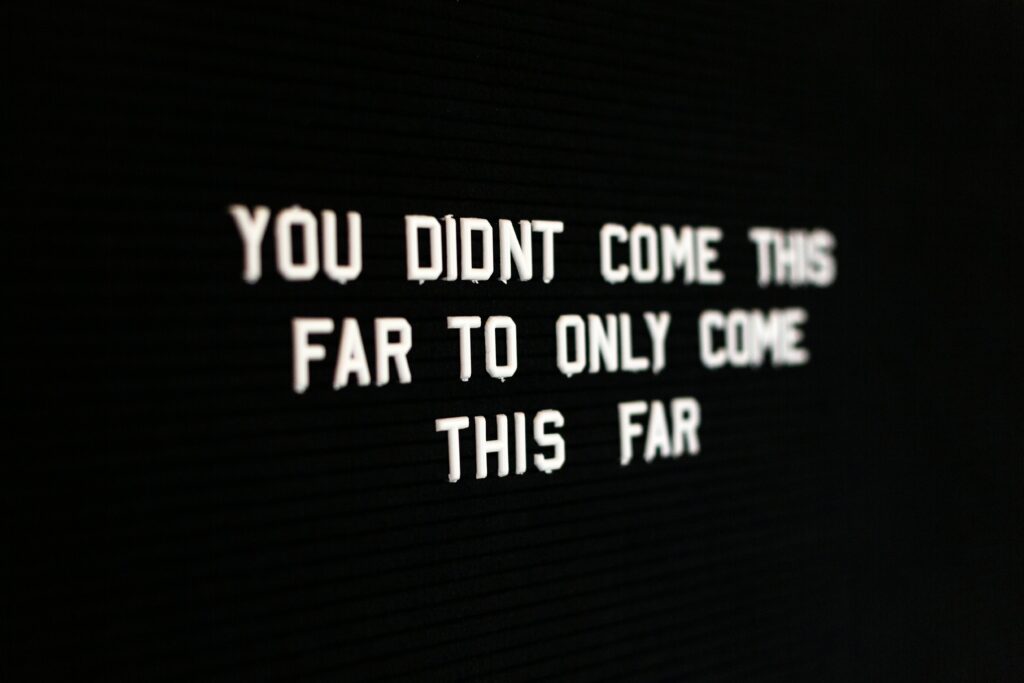
Share a story about how you overcame a learning challenge:
I remember attending a sociology class that focused on classical theorization (not my cup of tea). Because I wasn’t interested in 1960’s theory, it was challenging to motivate myself to complete readings, study and even go to class. However, I quickly realized that I would have to do something to change my sour attitude towards the class.
The strategies I used:
- Made a schedule and wrote down tasks I would complete each day whether it was completing a section of a reading or assignment.
- According to Seifert & Sutton (2018), goal setting is important in academic achievement. Therefore, I made it my goal to not only attend each class, but try and take something away from each class. If I found something in the content that I was interested in, I would be more motivated to complete each daily task.
- Another strong instructional strategy is to know your target learners (Seifert & Sutton, 2018). Since I know my academic self quite well, I made sure to balance my schedule and not to make my daily tasks too heavy and overwhelming. In my brain, it is better to complete little tasks each day then nothing for a week and then trying to finish it all in one day. By catering to my own study habits, I increased my motivation and made myself feel more engaged with manageable goals and a perceived sense of competence.
2. I rewarded myself whenever I completed my daily tasks by watching a movie, taking myself out for ice cream, or whatever I felt like doing.
- According to this reading, Learning is hard because it takes focused work and effort. When you are learning, you are challenging and opening up your mind to something new. This is why rewards work so well for me because when I feel drained from completing a task, I keep myself engaged and feeling accomplished by doing something that I like.
- Additionally, learning is hard because fear leads to procrastination. The unknown makes you not want to start a scary new task and it turns into stalling. Spreading my tasks out into small chunks and telling myself that the reward is worth it helps with this phenomenon.
- Ultimately, the payoff is truly worth the headaches and hard work because not only did I receive a good grade, I learned so much and have a good understanding of the content of which I still use in my current sociology classes.
Share a story about your best learning experience:
I started playing soccer at a very young age and enjoyed every second of it. But when it came to penalty kicks, I always got nervous and second guessed myself which resulted in missed shots. However, I overcame this obstacle by following Keller’s Arcs Model:
- Attention: how will you engage and maintain the interest of your learners?
- I was consistent with practicing my penalty kicks. I practiced my precision and where I wanted the ball to go every day after school in my backyard.
- I learned from my environment and associated my backyard with soccer and soccer with excitement and motivation to get better.
- Relevance: how can you make the learning experience personally relevant and meaningful?
- I was personally interested in getting better at doing penalty kicks so this motivated me.
- Confidence: how can you build in learner autonomy and a sense of self-efficacy in your design?
- Of course there were days that I wouldn’t get the shots that I wanted but I took it day by day and aimed for little accomplishments each day.
4. Satisfaction: how can you support your learners in achieving their goals and feeling accomplishment?
- I would remind myself what I was working for: I wanted to be prepared for my next penalty shot and make sure I got the goal.
- This was my best learning experience because when I entered my next tournament, I made the panetly shot and helped my team win. I remember feeling accomplished and so proud of myself. I proved to my team, my coach, and myself that I could do it. I will never forget the rush. It was all worth it.

Community Contributions
This week I had the opportunity to read such insightful blog posts written by Kyla and Jialong in my learning pod.
Hi Kyla,
I really enjoyed reading through your post. I have never driven standard and have recently been looking at purchasing a manual car and am so scared to learn! However, your encouragement and drive really helps me think that it’s not that bad and completely worth it.
I also like how you mentioned how it takes time for our minds to unlearn and adjust to new tasks. Learning is all about changing your mind about something which is why it is so difficult and takes motivation and effort. It may be hard to initiate a new task but it is never impossible!
Hi Jialong,
I found your take on learning theories interesting and well thought out. I like how you mentioned that everyone learns differently. This is very important to understand because when we figure out the ways we learn best, we are able to cater to and adjust our learning approaches accordingly. With this mindset, students will be able to point out their strengths and weaknesses and become successful.
References
Keller, J. M. (2010). Motivational design for learning and performance: The ARCS model approach. New York: Springer.
Seifert, K. & Sutton, R. (2018). Motivation Theories on Learning. In R. E. West, Foundations of Learning and Instructional Design Technology: The Past, Present, and Future of Learning and Instructional Design Technology. EdTech Books. Retrieved from https://edtechbooks.org/lidtfoundations/motivation_theories_on_learning
Leave a Reply